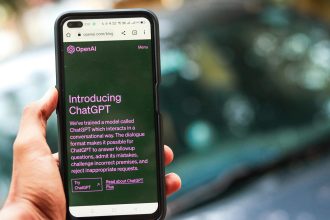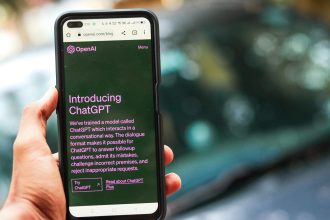political-violence-prevention
Political Violence: 5 Ways to Prevent Extremism & Protect Democracy
The specter of political violence looms large in today’s world, threatening the very fabric of democratic societies and civic life. From divisive rhetoric to outright acts of aggression, the escalation of conflict can erode trust, destabilize communities, and inflict lasting harm. Understanding the mechanisms that fuel this violence and, more importantly, identifying proactive strategies to prevent it is crucial for anyone committed to a peaceful and stable future. This article delves into the causes, consequences, and critical solutions to mitigate political unrest and foster a more harmonious society.
Understanding the Roots of Political Violence
To effectively combat political violence, we must first grasp its underlying causes. It rarely erupts spontaneously; rather, it often stems from a complex interplay of socioeconomic, cultural, and political factors that create fertile ground for discord and extremism. Recognizing these foundational elements is the first step toward prevention.
What Fuels Extremism and Polarization?
Extremism often thrives in environments marked by perceived injustice, economic hardship, or a lack of representation. When individuals or groups feel unheard, marginalized, or systematically disadvantaged, they can become susceptible to radical ideologies that offer simplistic solutions or scapegoats. This can lead to deep polarization, where society fragments into opposing camps with little common ground.
The Role of Hate Speech in Inciting Conflict
One of the most insidious precursors to political instability is the proliferation of hate speech. This type of rhetoric dehumanizes opponents, spreads misinformation, and actively incites prejudice against specific groups. When left unchecked, hate speech can normalize hostility, erode empathy, and create an atmosphere where violence seems not only permissible but, to some, even justifiable. It’s a dangerous pathway that can quickly escalate from words to deeds.
The Devastating Impact of Political Violence on Society
The consequences of political unrest ripple through every aspect of life, leaving behind a trail of destruction that extends far beyond immediate casualties. Its effects undermine the foundational principles of a functioning society.
Eroding Trust and Undermining Democratic Institutions
When political violence occurs, it severely damages public trust in institutions, including government, law enforcement, and the electoral process. Citizens become cynical, believing that their voices don’t matter or that peaceful change is impossible. This erosion of trust can lead to disengagement, further empowering extremist elements and weakening the very democratic structures designed to protect public welfare.
Human Cost: Trauma and Loss
Beyond the physical injuries and fatalities, the human cost of political unrest is immense. Communities are torn apart, families are displaced, and individuals suffer profound psychological trauma. The fear, anxiety, and grief generated by such events can linger for generations, impacting mental health, social cohesion, and overall societal well-being.
Strategies for Preventing Political Violence and Fostering Peace
Preventing political violence requires a multi-faceted approach that addresses both immediate threats and underlying causes. It’s a collective responsibility demanding commitment from leaders, institutions, and citizens alike.
Promoting Responsible Leadership and Civic Discourse
Leaders have a critical role to play in setting the tone for public discourse. Responsible leadership involves condemning violence unequivocally, promoting respectful dialogue, and actively seeking common ground. Encouraging healthy civic discourse—where differing opinions are debated constructively rather than demonized—is essential for resolving conflicts peacefully and strengthening democratic stability.
Educating for Empathy and Critical Thinking
Education is a powerful tool against extremism. By fostering empathy, teaching critical thinking skills, and promoting media literacy, we can equip individuals to discern misinformation, resist manipulative narratives, and understand diverse perspectives. This helps build a more resilient populace less susceptible to radicalization.
Strengthening Community Resilience
Strong, inclusive communities are better equipped to resist and recover from political tensions. Investing in local initiatives that promote social cohesion, economic opportunity, and intergroup dialogue can build bridges between different segments of society, reducing the likelihood of conflict. Community leaders, local organizations, and grassroots efforts are vital in this process.
Actionable Steps for Citizens and Leaders:
- **Support initiatives for conflict resolution:** Engage with or contribute to organizations working on peacebuilding and mediation.
- **Engage in respectful public discourse:** Challenge hate speech and misinformation constructively, both online and offline.
- **Report hate speech responsibly:** Understand platforms’ reporting mechanisms and use them when appropriate to counter harmful content.
- **Advocate for inclusive policies:** Support policies that address inequality, promote human rights, and ensure equitable representation.
- **Promote media literacy:** Educate yourself and others on how to critically evaluate news sources and identify propaganda.
Addressing Hate Speech: A Critical Step Towards Preventing Political Violence
Combating hate speech is paramount in the effort to prevent political violence. It’s not about stifling free speech but about protecting communities from incitement to hatred and discrimination that can lead to real-world harm.
Defining and Identifying Harmful Rhetoric
It’s important to differentiate between offensive speech and hate speech. Hate speech specifically targets individuals or groups based on characteristics like race, religion, gender, or sexual orientation, inciting discrimination, hostility, or violence. Learning to identify its patterns and impact is key to addressing it effectively.
The Importance of Counter-Narratives
Simply removing hate speech isn’t enough; we must also actively promote positive, inclusive counter-narratives. These narratives highlight shared values, celebrate diversity, and offer constructive visions for the future. By amplifying voices of peace and unity, we can dilute the influence of divisive rhetoric and build a more resilient public sphere.
Building a Future Free from Political Violence: A Collective Endeavor
The journey towards a world free from political violence is ongoing and requires sustained commitment from all of us. It’s a testament to our shared humanity and our collective aspiration for peace.
The Power of Unity and Shared Values
Despite our differences, humanity shares fundamental values: the desire for safety, dignity, and a better future. Focusing on these commonalities can help us overcome divisions and work together towards solutions that benefit everyone. Unity in the face of adversity is our greatest strength.
Key Takeaways for a Stable Society:
- Political violence is preventable through concerted effort.
- Hate speech fuels division and must be actively countered.
- Responsible leadership and civic discourse are crucial for stability.
- Active citizen engagement strengthens democratic institutions.
- Empathy, education, and community resilience build bridges, not walls.
The threat of political violence is real, but so is our capacity to prevent it. By understanding its origins, addressing hate speech, promoting responsible leadership, and fostering strong, empathetic communities, we can build a future where dialogue triumphs over aggression and democracy thrives. Join the conversation on how we can collectively build a future free from political violence.
Understand the critical factors contributing to political violence and how to combat hate speech. Discover actionable strategies for fostering peace and strengthening democratic stability. Learn more!
political violence prevention, hands uniting, diverse community, peace symbol, democracy protection
© 2025 thebossmind.com
Featured image provided by Pexels — photo by Mohamad Affandy









